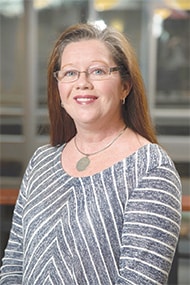When someone breaks their leg, there is a cast, crutches and clear signs of how painful it is to walk. We stop to hold doors for them and are more patient with their slower pace. We ask what happened and show empathy for their pain. But for people living with brain injury, there aren’t any casts or crutches to help them through symptoms like fatigue, confusion, slow processing, anxiety, and heightened visual sensitivity. We don’t see them as hurt, so we assume that they are just fine. But that couldn’t be farther from the truth. Every day is a hidden struggle they wear behind a façade of “normal,” often alone and afraid.
I am blessed to have the opportunity to sit down with a special group of these survivors each month as I help lead the New Beginnings Brain Injury Support Group in Suwanee. Their stories are powerful. Some died and came back. Some had to learn to walk, talk and care for themselves again. Some have large memory gaps they will never regain. The reality is, once the brain is damaged, no matter the extent, it is never the same again. I have come to learn all too well that there are two faces to their journey – the one on the outside and the one within.
The time has come for us to help brain injury survivors in our community tell their powerful stories. In March, The Hudgens Center for the Arts in Duluth will feature a special exhibit called “Unmasking Brain Injury.” This exhibit will feature masks made by survivors right here in our community that will share their unique journeys. They will tell their stories through colors, words, images, textiles and more. Several mask making workshops have been held over the past two months to help survivors design and craft their masks. Collaboration between The Hudgens Center’s Healing Arts program, Annandale Village, Brain Injury Association of Georgia support groups and other community partners have helped make this exhibit possible.
The goal of the exhibit is help raise awareness of the prevalence of brain injury in our community; to give survivors a voice and the means to educate others about what it’s like to live with a brain injury; and to show others that persons living with a disability due to their brain injury are just like anyone else, deserving of dignity, respect, compassion and the opportunity to prove their value as citizens in our community. Once the exhibit closes here in Gwinnett, the masks will be gifted to a national program that will showcase the masks in a larger collection that will travel all across the country.
Please make plans to go see this exhibit in March. It will be free to attend. This is our chance to truly “see” these survivors, inside and out and understand the masks they wear. This is our opportunity to better understand their walk and share our love and support for them. This is a great way for us to send the message that they are not “invisible” to us and that we honor and celebrate their journeys of survival.


